Split a String into multiple Variables in Python
Last updated: Apr 8, 2024
Reading time·3 min

# Split a string into multiple variables in Python
Unpack the values to split a string into multiple variables.
The str.split() method will split the string into a list of strings, which
can be assigned to variables in a single declaration.
my_str = 'bobby hadz com' a, b, c = my_str.split(' ') print(a) # 👉️ bobby print(b) # 👉️ hadz print(c) # 👉️ com
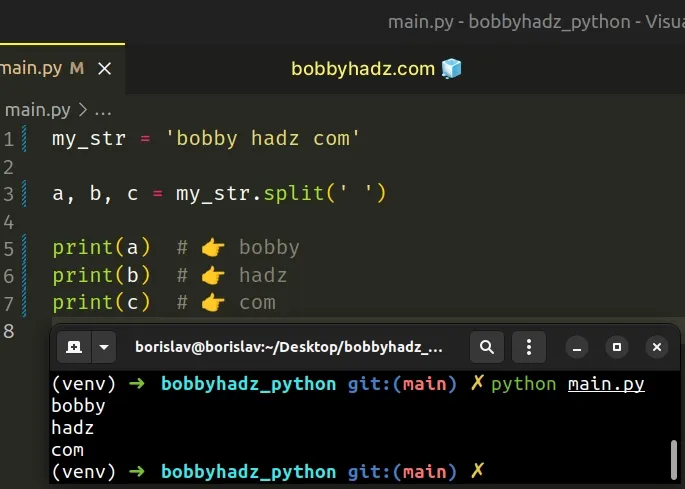
The example splits the string into a list of strings on each space, but you could use any other delimiter.
my_str = 'bobby hadz com' # 👇️ ['bobby', 'hadz', 'com'] print(my_str.split(' '))
Make sure to declare exactly as many variables as there are items in the list.
If the variables on the left-hand side are more or fewer than there are items in the list, an error is raised.
# Using the maxsplit argument in the call to split()
The maxsplit argument can be used to set the number of splits.
For example, if you only want to split into two variables, set the maxsplit()
argument to 1.
my_str = 'bobby hadz com' # 👇️ ['bobby', 'hadz com'] print(my_str.split(' ', 1)) # 👈️ split string maximum of 1 times a, b = my_str.split(' ', 1) print(a) # 👉️ bobby print(b) # 👉️ hadz com
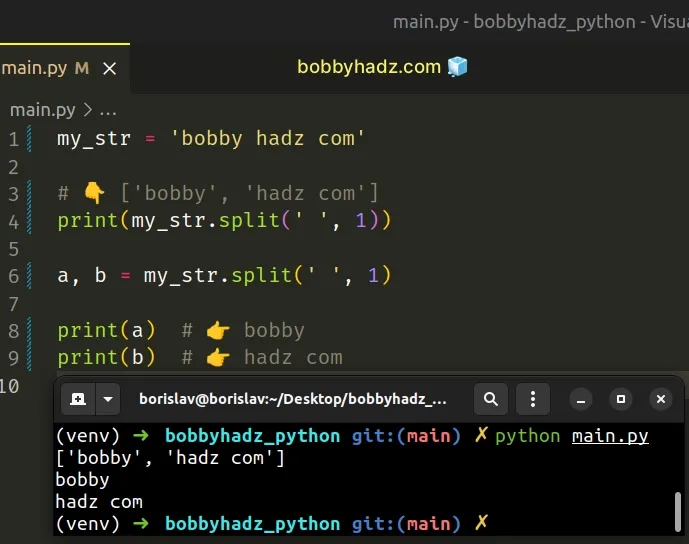
The str.split() method splits the string into a list of substrings using a delimiter.
The method takes the following 2 parameters:
| Name | Description |
|---|---|
separator | Split the string into substrings on each occurrence of the separator |
maxsplit | At most maxsplit splits are done (optional) |
If the separator is not found in the string, a list containing only 1 element is returned.
If you try to unpack more or fewer values than there are in the list, you would get an error.
my_str = 'bobby hadz com' print(my_str.split(' ')) # 👉️ ['bobby', 'hadz', 'com'] # ⛔️ ValueError: too many values to unpack (expected 2) a, b = my_str.split(' ')
# Using an underscore to discard values
You can use an underscore if you want to discard one or more of the values.
my_str = 'bobby hadz com' a, b, _ = my_str.split(' ') print(a) # 👉️ bobby print(b) # 👉️ hadz
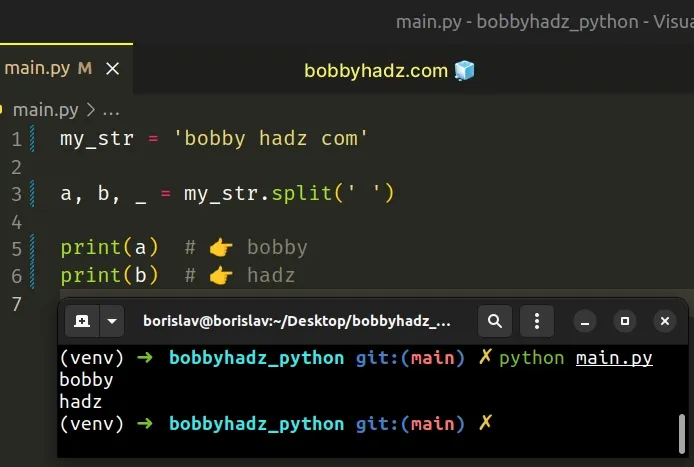
The underscore _ character is a convention that signals to the reader of the
code that the value is not needed.
# Leading and trailing delimiters
If your string starts with or ends with the specific delimiter, you will get empty string elements in the list.
my_str = ' bobby hadz com ' # 👇️ ['', 'bobby', 'hadz', 'com', ''] print(my_str.split(' '))
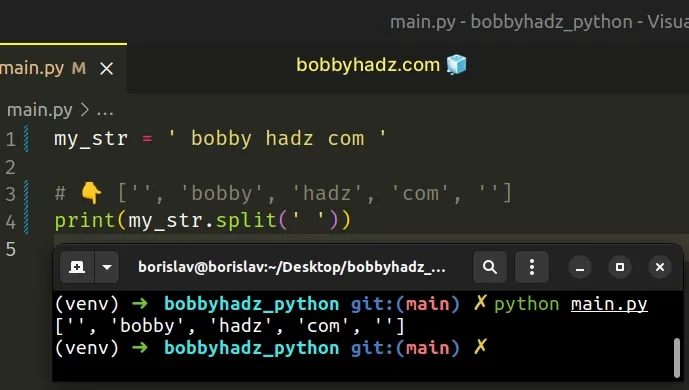
You can use the filter() function to
remove any empty strings from the list.
my_str = ' bobby hadz com ' # 👇️ ['', 'bobby', 'hadz', 'com', ''] print(list(filter(None, my_str.split(' ')))) a, b, k = list(filter(None, my_str.split(' '))) print(a) # 👉️ bobby print(b) # 👉️ hadz print(k) # 👉️ com
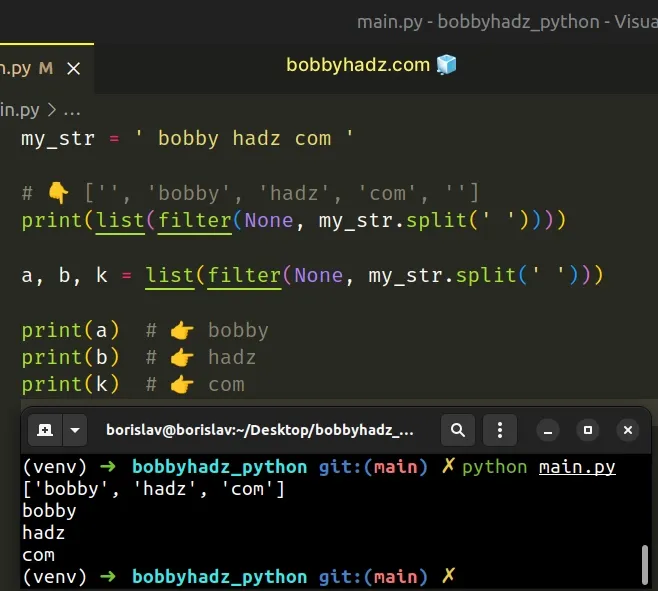
The filter() function takes a function and an iterable as arguments and constructs an iterator from the elements of the iterable for which the function returns a truthy value.
None for the function argument, all falsy elements of the iterable are removed.filter() function returns a filter object, so we have to use the list() class to convert the filter object to a list.# Specifying the correct delimiter
You can also pass any other separator to the str.split() method. Here is an
example that uses a comma.
my_str = 'bobby,hadz,com' # 👇️ ['', 'bobby', 'hadz', 'com', ''] print(my_str.split(',')) a, b, c = my_str.split(',') print(a) # 👉️ bobby print(b) # 👉️ hadz print(c) # 👉️ com
The split() method takes a delimiter as an argument and splits the string on
each occurrence of the delimiter, so make sure to specify the correct delimiter.
If the delimiter is not found in the string, a list containing only one item is returned.
my_str = 'bobby hadz com' print(my_str.split(',')) # 👉️ ['bobby hadz com']
# Additional Resources
You can learn more about the related topics by checking out the following tutorials:
- Split a String into a List of Integers in Python
- Split a String into Text and Number in Python
- How to convert a String to a Tuple in Python
- Split a string with multiple delimiters in Python
- How to Split a string by Whitespace in Python
- Split a String, Reverse it and Join it back in Python
- Split a string without removing the delimiter in Python

